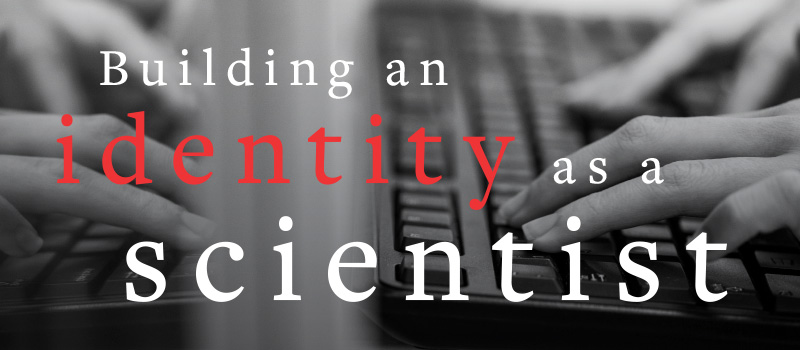
Cech Scholars embrace remote scientific research projects
When she thought about scientific research prior to this summer, Sara Amano ’22 envisioned that research had to be done in a lab with test tubes and fancy equipment.
Amano is one of four students in the first cohort of the Cech Research Scholars program. When the College decided in April that all student summer research had to be conducted remotely to mitigate the spread of the coronavirus in Grinnell, it forced Amano and her fellow students to rethink the traditional methods of conducting research.
Amano’s research project is about finding the optimal structure of copper clusters. She and Heriberto Hernandez, associate professor of biological chemistry, are doing the research through analytical and computational chemistry, which can be done remotely.
“Having the research experience is helping me understand what a researcher does,” Amano says. “Through working with Professor Hernandez, I see that the field contains more than working in labs.”
While the remote aspect is a new wrinkle, the idea of students learning how to conduct research and building a sense of belonging and identity as a scientist is why Carol Martinson Cech and Tom Cech, both class of 1970, created the program. The Cechs began teaching science and performing research at the University of Colorado Boulder in 1978. Tom is still a professor there, while Carol moved on to a career in biotechnology. Tom Cech is the only Grinnell graduate to win a Nobel Prize. He received the 1989 Nobel Prize in chemistry for the co-discovery of the catalytic properties of RNA.
The Carol and Tom Cech Research Scholars Fund ensures underrepresented biology, chemistry, biological chemistry, or physics majors at Grinnell will develop content knowledge and skill through summer research projects. The endowed fund will support student scholars every summer. Scholars will receive a Mentored Advanced Project (MAP) research stipend and an academic year scholarship. In future years, travel funding for off-campus research presentations will also be provided.
“I was at a loss for words when I was informed that I was one of the students receiving the scholarship,” Amano says. “It is an amazing scholarship, and I plan on continuing my research after the summer. I am truly thankful to Tom and Carol for creating the Cech Research Scholars.”
The first four Cech Research Scholars and their faculty mentors are:
- Sara Amano ’22 (Heriberto Hernandez, associate professor of biological chemistry)
- Alexandra Kamm ’21 (Elizabeth Queathem, biology lecturer)
- Jessica Kunzman ’21 (Keisuke Hasegawa, assistant professor of physics)
- Sylvia Alf Rippee ’22 (Maisha Kamunde-Devonish, assistant professor of chemistry)
Queathem says summer research gives students an opportunity to focus in on a single project, which isn’t the case during the academic year.
“It’s sort of a sneak preview of what graduate school would be like,” she says. “It also gives students a chance to have a closely mentored relationship with a faculty member. Many of our students are able to publish or present the research. The skills gained from doing this work, especially with statistical analysis, are skills that later help them get a job.”
Kamm will assist Queathem with research about exercising in different environments, including measuring the level of workouts and what people enjoy about it.
“As an athlete herself, Alex is very interested on a personal level about this type of research as well as providing an intellectual perspective,” Queathem says.
The research typically would be conducted by having students take blood levels of people exercising. Because of social distancing and remote research, the College purchased a number of inexpensive garment activity trackers. Kamm will be able to collect samples without direct contact by sending the trackers to research participants.
“The Cech Research Scholars will benefit so many students and provide them with an amazing chance to get started with scientific research,” Queathem says. “I admire people who want to give back to their institution and am so grateful to Tom and Carol for creating this fund.”
— by Jeremy Shapiro